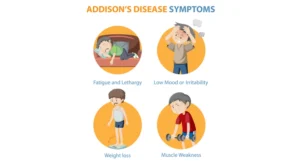The Link Between Substance Abuse and Mental Health
By TOI Staff
February 8, 2023
Update on : February 8, 2023

The relationship between substance abuse and mental health is a complex issue. When you look closely, addiction and mental illness are intertwined, and the two often feed off each other in ways that can be hard to break.
Substance abuse is the chronic use of alcohol, illegal drugs, and certain prescription medications that lead to physical, psychological, and social harm. Mental health refers to a person’s psychological health and surrounds various conditions, such as depression, anxiety, and bipolar disorder.
Substance abuse can worsen pre-existing mental health conditions, while mental health problems can increase the likelihood of substance abuse. It’s crucial for individuals who struggle with both to receive integrated treatment for both issues to achieve lasting recovery. That said, let’s take a look at the relationship between substance abuse and mental health disorders.
-
Shared Risks Lead To Mental Illness and Substance Abuse
People struggling with mental illness or emotional distress often use drugs, alcohol, and other substances as coping mechanisms. But in the long run, substance use can worsen symptoms of pre-existing mental health conditions. It’s also possible that a person may develop a substance use disorder without any underlying mental health issues. Regardless of the reason behind it, this relationship is an important one to understand.
Risk Factors
Common risk factors can lead to mental illness, substance use, and addiction. These include genetics, traumatic experiences such as childhood trauma or abuse, poverty, social isolation, cultural influences such as peer pressure and easy access to drugs or alcohol, an underlying mental health condition, or a family history of mental illness.
Co-Occurring Disorders
A dual diagnosis or co-occurring disorder is when someone simultaneously has a substance use disorder and a mental health disorder. When left untreated, these two conditions can reinforce and feed into each other. For example, drug use may worsen symptoms of depression or anxiety and make further drug abuse more likely as the person seeks relief from the distress caused by their mental health conditions.
All in all, understanding these elements is crucial to the prevention and formulation of a treatment plan. Organizations work hard to ensure individuals struggling with mental illness or substance abuse receive assistance to stay healthy and well. To learn where you can find help, online resources such as https://jacksonhousecares.com/about-us/locations/el-centro/ can help connect you with the right professionals.
-
Substance Abuse Can Worsen Pre-existing Mental Health Conditions
Evidence suggests that substance use can be a starting point and an effect of mental health issues. Not to mention it can be an exacerbating factor for existing mental illnesses. Understanding the relationship between these two areas can help us better address related problems in our society.
Substance abuse can lead to the development of various mental health conditions, such as depression, anxiety, and post-traumatic stress disorder (PTSD). In many cases, people struggling with substance dependence turn to substance use as a coping mechanism for their mental distress. This often leads them into an ongoing cycle of self-medication and further deterioration of their psychological state.
Furthermore, the physical and psychological effects of substance abuse can directly contribute to mental health issues. Long-term drug or alcohol use can cause physiological changes in the brain associated with depression, anxiety, and other mental illnesses.
Substance abuse can also worsen pre-existing mental health conditions such as bipolar disorder, schizophrenia, PTSD, and depression. These illnesses often involve a complex interplay between genetics and environment. And when combined with substance use, they can become increasingly challenging to manage due to their unpredictable symptoms.
Drugs and alcohol may temporarily relieve some of these symptoms but ultimately interfere with long-term treatment plans for the underlying condition. As such, it’s crucial for people struggling with substance use and mental health issues to seek professional help to address these areas.
-
Mental Health Problems Can Increase The Likelihood Of Substance Abuse
People struggling with a mental illness may turn to drugs and alcohol in an attempt to cope with their symptoms. This type of self-medication can be dangerous, increasing the risk of developing more severe mental health conditions and addiction.
On the other hand, people who abuse substances may also be at increased risk for developing mental health disorders. Experts have linked substance abuse to higher rates of psychological distress. The long-term effects of substance abuse can interfere with healthy functioning in relationships and day-to-day activities, further increasing the risk of developing mental health problems.
Still, individuals must note that the link between substance abuse and mental health is complex and varies from person to person. For some, an underlying mental health disorder may increase their substance abuse risk. For others, substance abuse may trigger or worsen existing mental illness.
Either way, treatment should be tailored to address both mental health issues as well as patterns of substance abuse to achieve lasting recovery. Ultimately, managing a dual diagnosis requires specialized care from experienced professionals to break the cycle of addiction and improve overall physical, emotional, and psychological well-being.
-
Treatment Options
Substance abuse and mental health issues often co-occur, meaning that individuals who suffer from one disorder are likely to suffer from the other. Unfortunately, the relationship between substance abuse and mental health is complicated.
Again, both conditions can exacerbate the other but can also interact in ways that make them difficult to separate. For this reason, individuals suffering from both disorders must get an integrated treatment plan that addresses their needs.
Benefits Of Integrated Treatment
Integrated treatment for substance abuse and mental health has been proven to be a highly effective approach to treating co-occurring disorders in individuals. Integrated treatment reduces the need for repeated, costly hospitalizations and maximizes recovery potential by treating both substance abuse and mental health issues simultaneously.
The primary benefit of integrated treatment is that it helps address the underlying causes of substance abuse and mental health disorders. Combining evidence-based treatments help individuals learn skills to manage their emotions, stressors, relapse triggers, and drug or alcohol cravings. Also, integrated treatment reduces the risk of relapse by providing support for addiction recovery and mental health issues.
Therapeutic Interventions With Integrated Treatment
In addition to addressing the underlying causes of addiction and mental health issues, the integrated treatment also offers individuals a variety of therapeutic interventions. These interventions can help them develop healthier coping skills. This includes the following, on top of other measures:
- Cognitive behavioral therapy
- Dialectical behavior therapy
- Positive reinforcement techniques
- Mindfulness-based stress reduction strategies
- Relaxation exercises
- Art therapy
Integrated treatment also provides individuals with holistic care, which includes addressing the physical, psychological, and spiritual aspects of their recovery. This comprehensive approach to treatment increases the likelihood of successful outcomes and long-term sobriety.
Final Thoughts
The relationship between substance abuse and mental health is complex and often confusing. But recognizing the connection between these two is essential to address the root cause adequately.
Substance abuse can cause or worsen various mental illnesses, making it particularly dangerous for people who already struggle with mental health conditions. To achieve lasting recovery, individuals struggling with both must receive integrated treatment that addresses both health issues simultaneously.
Early intervention and treatment can help reduce the risk of later substance abuse and improve overall outcomes for individuals. Ongoing support and care are also crucial for individuals who have experienced substance abuse and mental health problems. The road to recovery seems impossible, but change starts when you seek help.

















